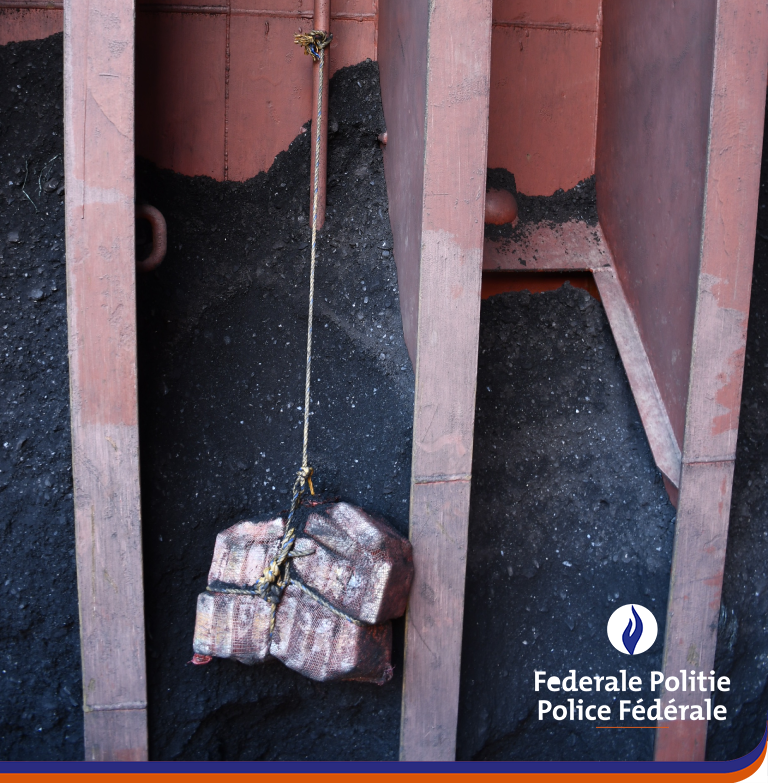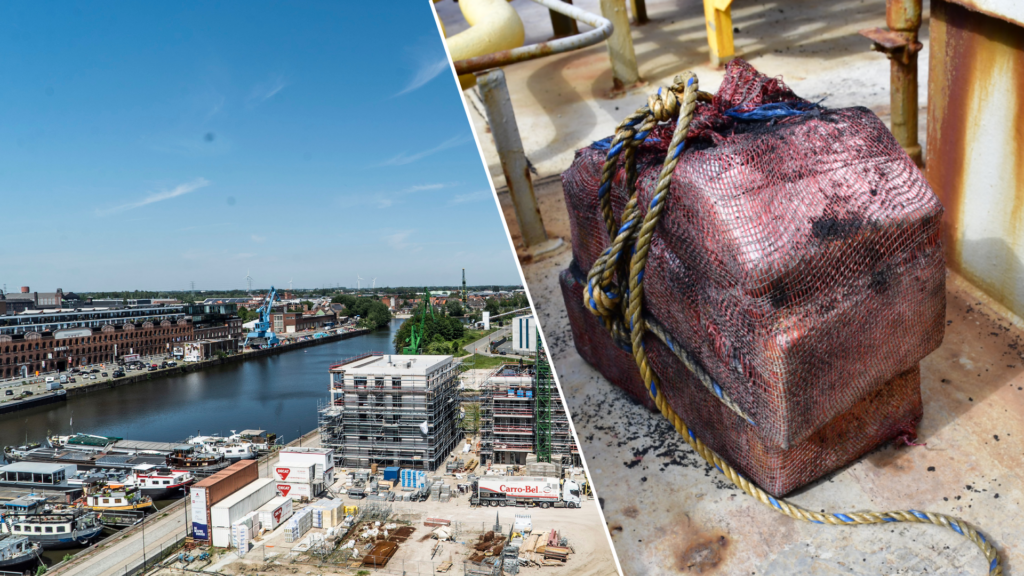Antwerp's status as a key entry point for cocaine being smuggled into Europe spurred authorities to enforce tougher controls. However, this has induced smugglers to find alternative routes, including via Belgium's other ports.
A large share of cocaine that enters Europe comes through the port of Antwerp-Bruges. Large seizures and increased safety risks saw checks being stepped up and significant investments being made in customs technologies, with initial results showing this has reduced volumes of seized drugs.
However, customs officials warned that increased surveillance in Belgium's largest port could see the problem being displaced elsewhere.
Already, it seems the issue is shifting to other places in Belgium: in the North Sea Port Ghent, a bulk port, 24 kg of cocaine was found during the inspection of a coal ship from Colombia last week. This marked the fourth time this year that cocaine packages were found on a coal ship from the Latin American country.
"I think we can conclude that this is in part a waterbed effect," Director of Operations of the Federal Judicial Police East Flanders, Patrick Willocx, told The Brussels Times.
"Our colleagues in Antwerp have increased patrols, while customs are looking to control all suspicious containers that pass through the port. It makes sense for the drug mafia to look for alternatives to get their drugs into Europe," the director explained.
Complicated, but still easier
Willocx and his team have been following the shift of drug trafficking towards the port in Ghent for several years. It first started discovering drug packages in ships passing through its ports around five years ago. At the time, this phenomenon was novel.
"Now, this latest discovery is not a new trend, we have seen the same thing happen in previous years," he said. The amount of drugs found in bulk ships is on average smaller than those on cargo ships, with around 20, 40, 80, or sometimes 100 kilograms, being found. "We have in the past discovered more than a tonne."

The packages of cocaine that were found in the coal section of a bulk ship. Credit: Federal Police
Smugglers use various systems to transport drugs via the port: authorities previously discovered drugs hidden in a crane on a boat, and packages being attached to the outside of the ship or in the water closets with a magnet. However, smuggling drugs via bulk ships is more complicated, Willocx explained.
"To hide and transport drugs in a bulk ship, the mafia must get on the ship at the port of origin to hide the drugs, and get back on the ship at the port of arrival to remove the drugs." Still, this is sometimes easier than transporting it via cargo ports with heightened security. "For this reason, I think we will certainly remain a candidate destination for the transporting of drugs into Europe."
Financing resources
Aside from posing a challenge for criminals, transport via bulk ships is also convoluting the jobs of authorities, as police forces find it more difficult to fully check a bulk ship. This process requires more manpower as it cannot be done by simply using a scanner or other technical means.
The Federal Judicial Police of East Flanders, the Shipping Police and Customs are therefore joining forces to carry out regular checks. Meanwhile, a working group is already running at the port and has already adjusted several of its systems. "We also rolled out an anonymous hotline relatively quickly which has been incorporated into the national Portwatch hotline," Willocx said.
However, security and access to the port have to be improved. A specific plan has been drawn up to make the Dutch side of the port – North Sea Port also comprises Vlissingen and Terneuzen in the Netherlands – safer.
The Dutch government has freed up millions of euros to this end. "But here on our side, at least in Ghent, this is not the case, which is why we are really looking into what resources we need here and how we are going to finance them," Willocx concluded.

